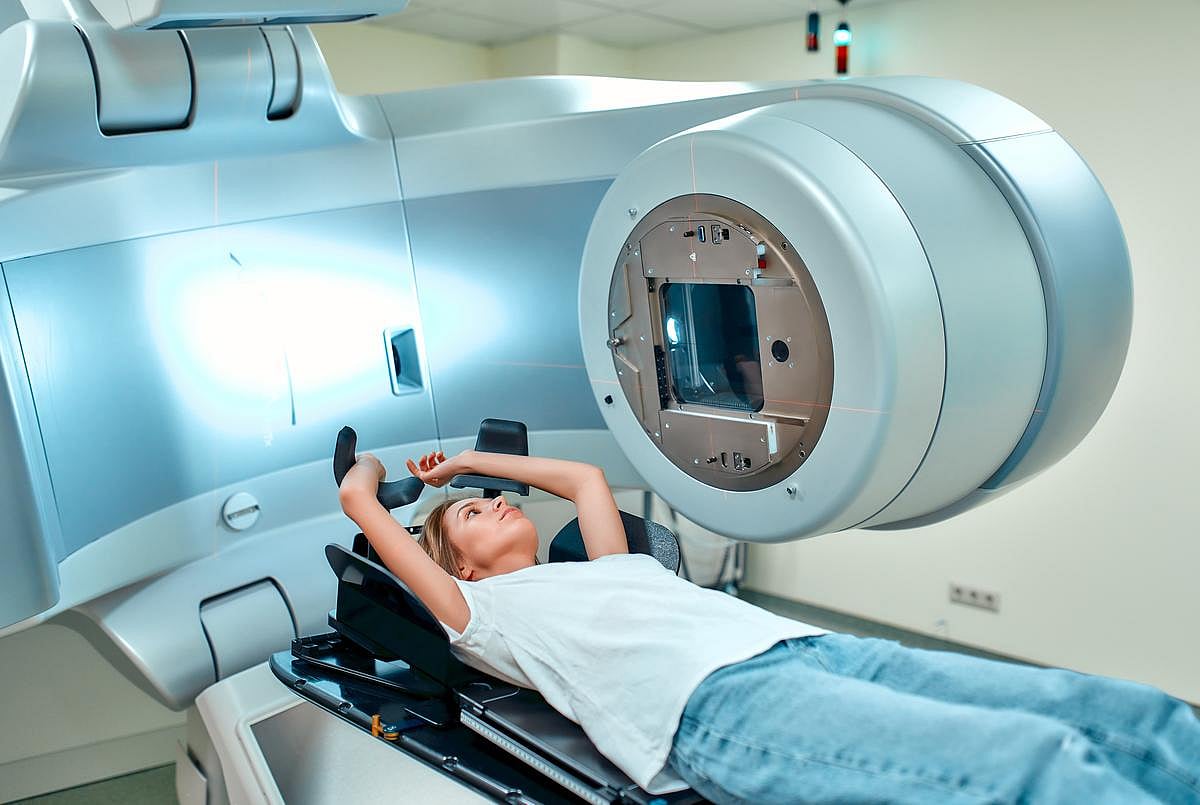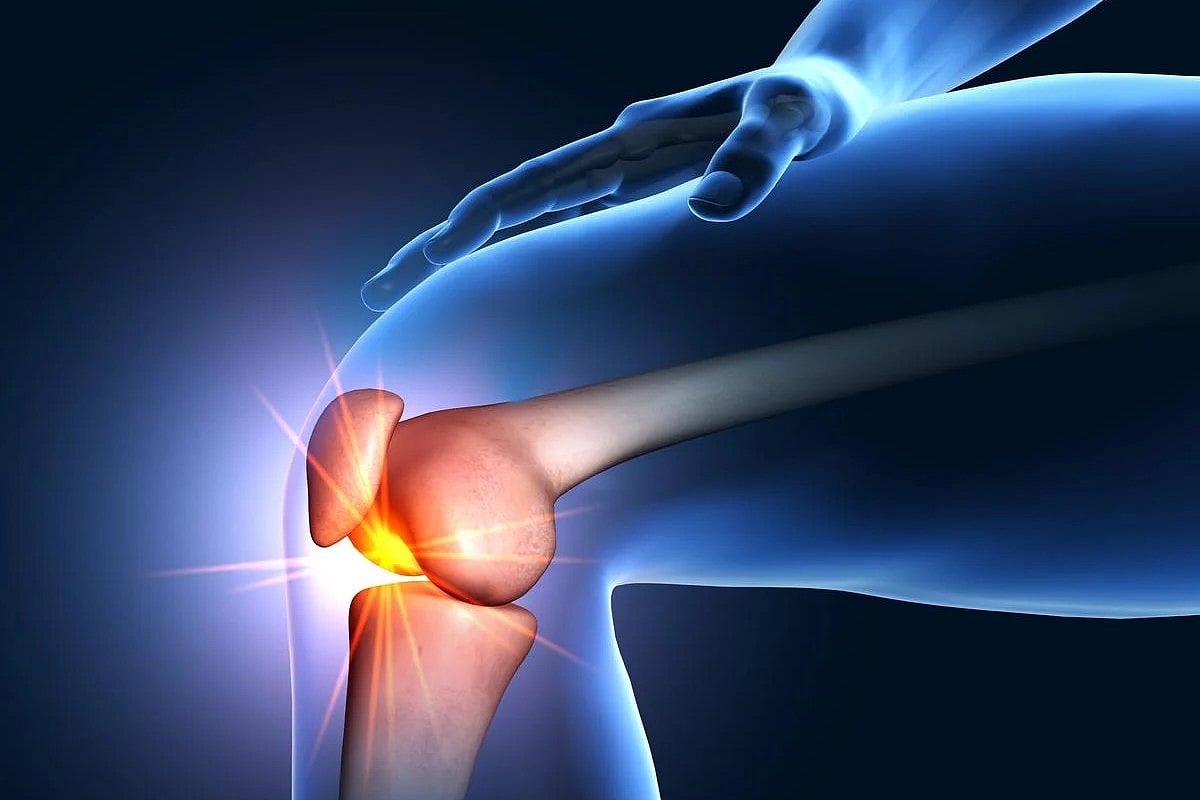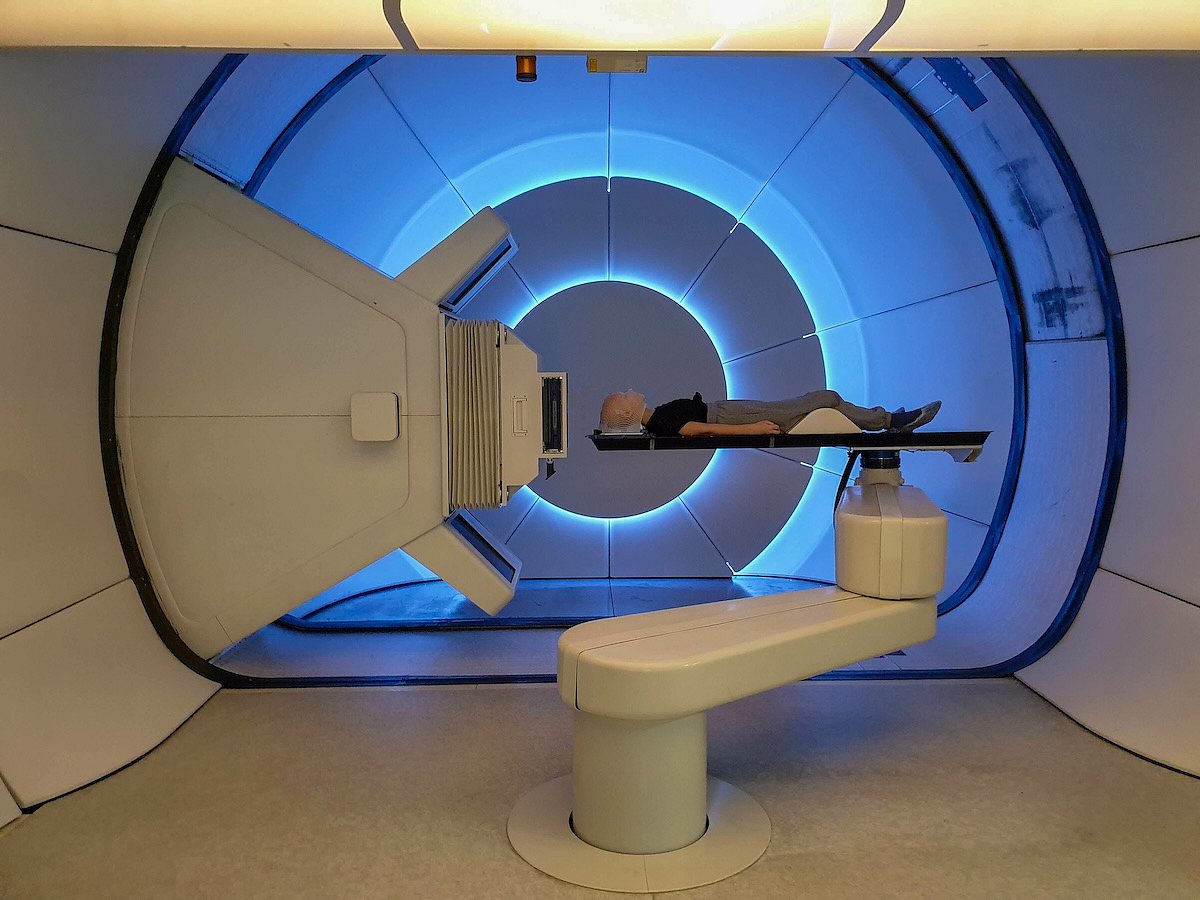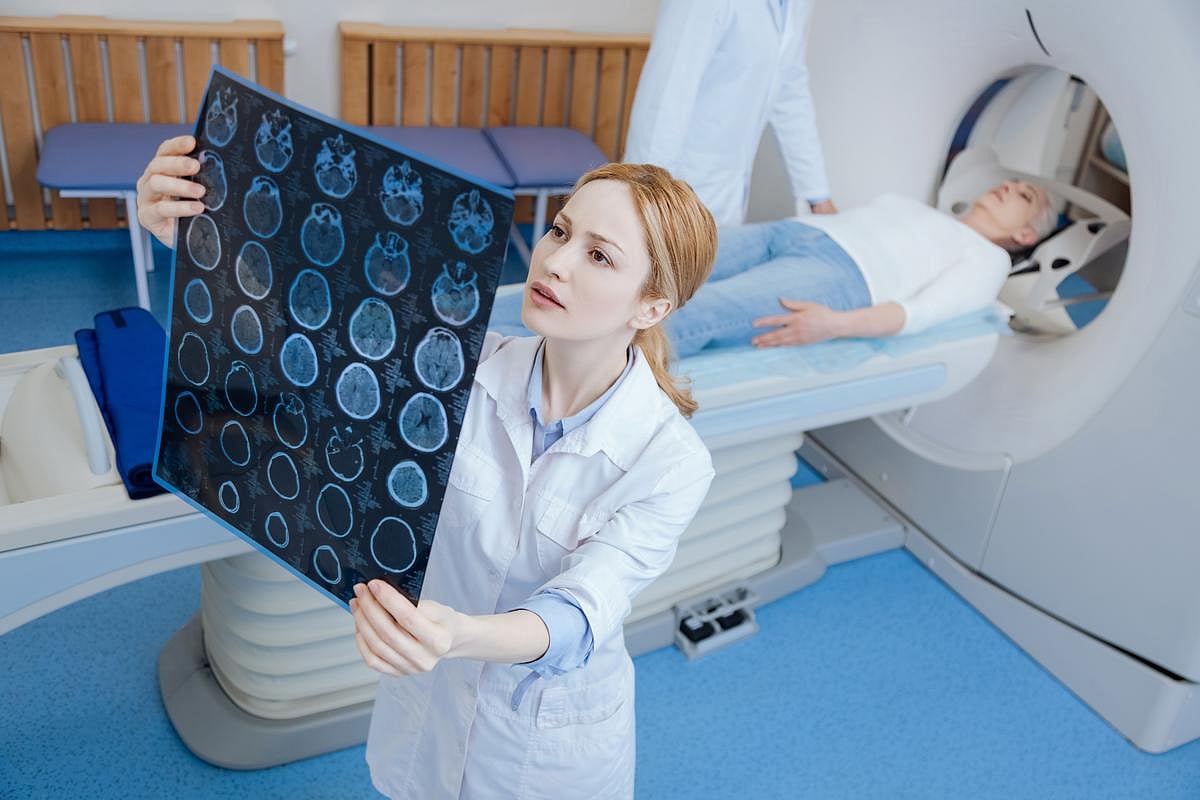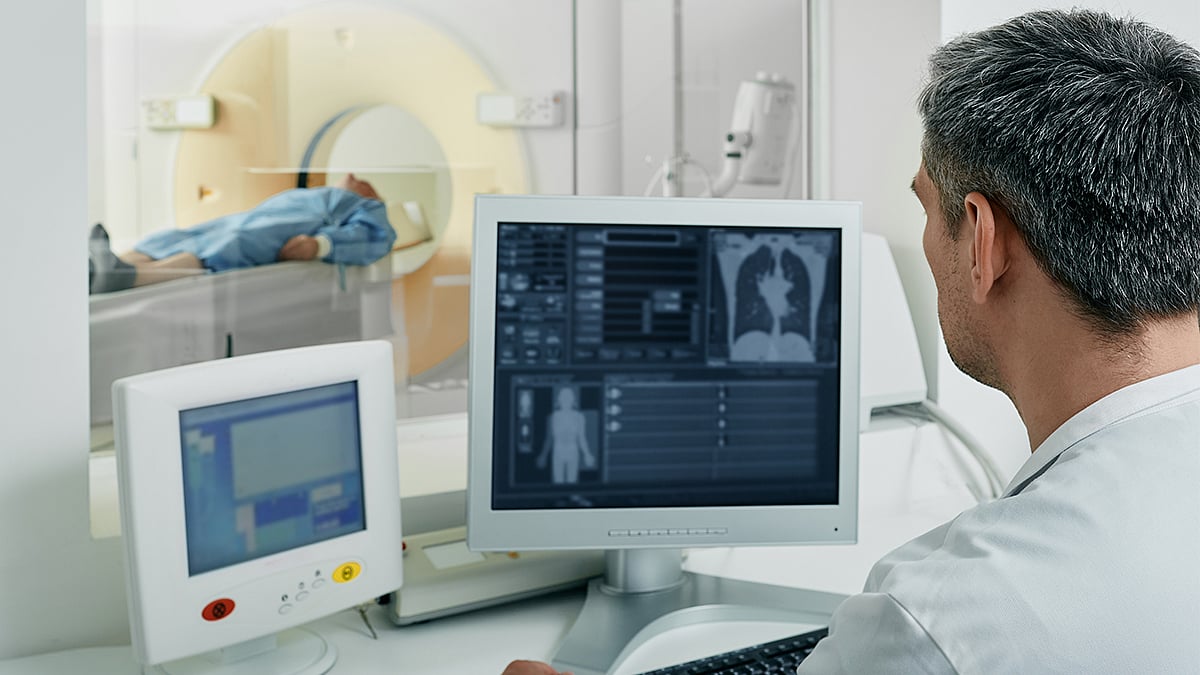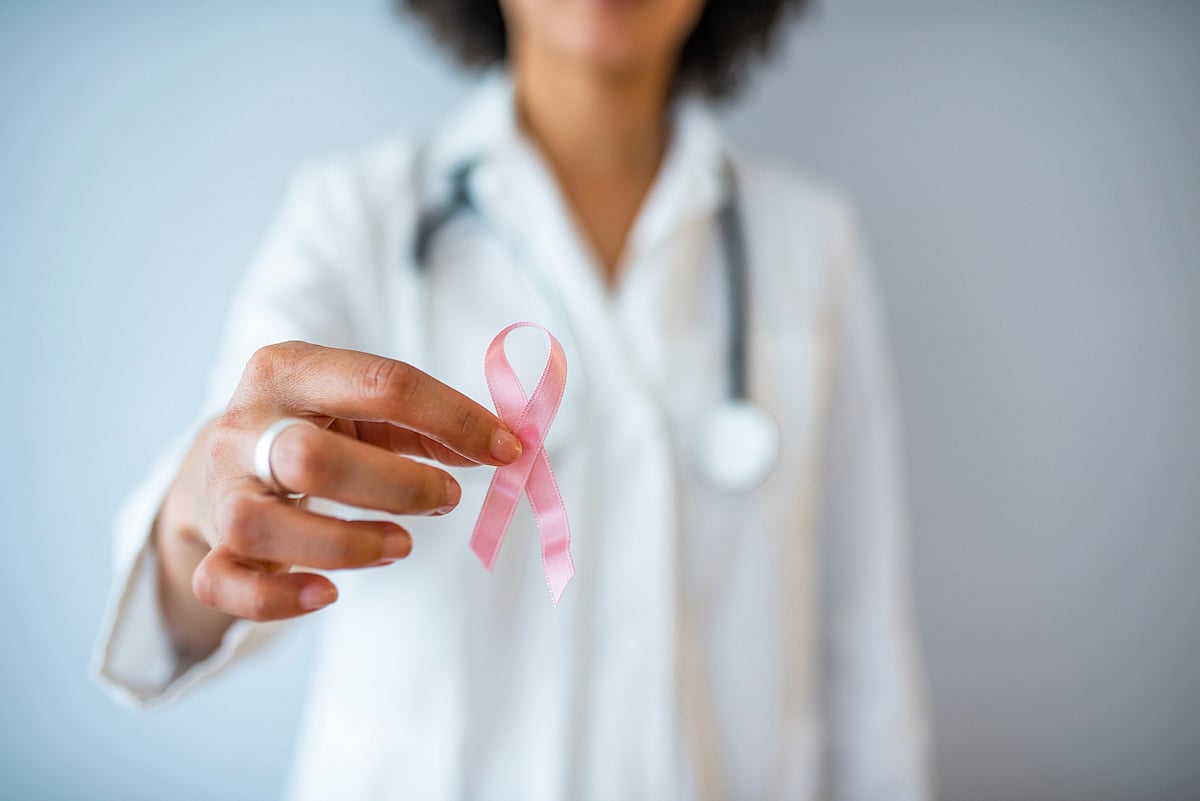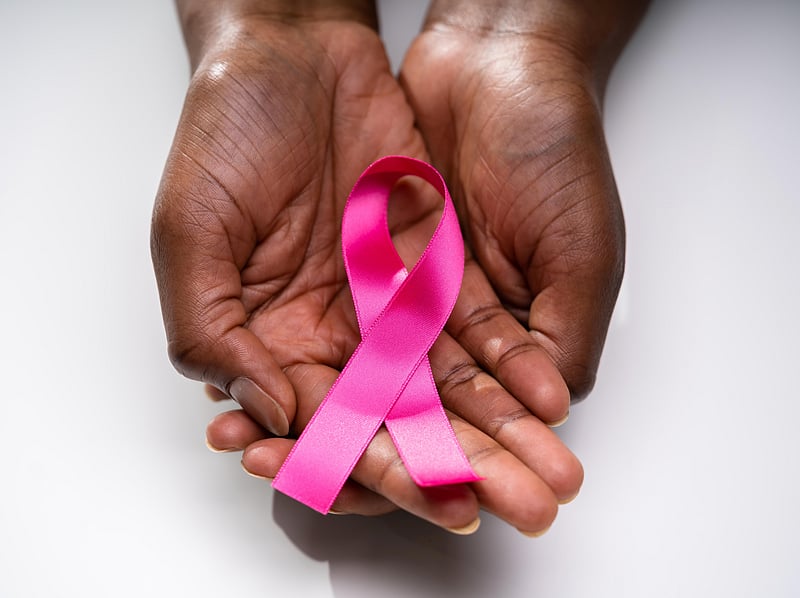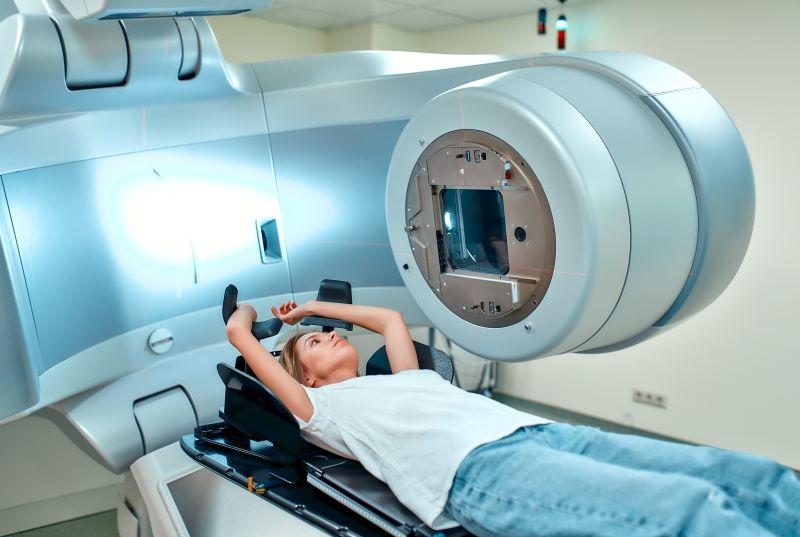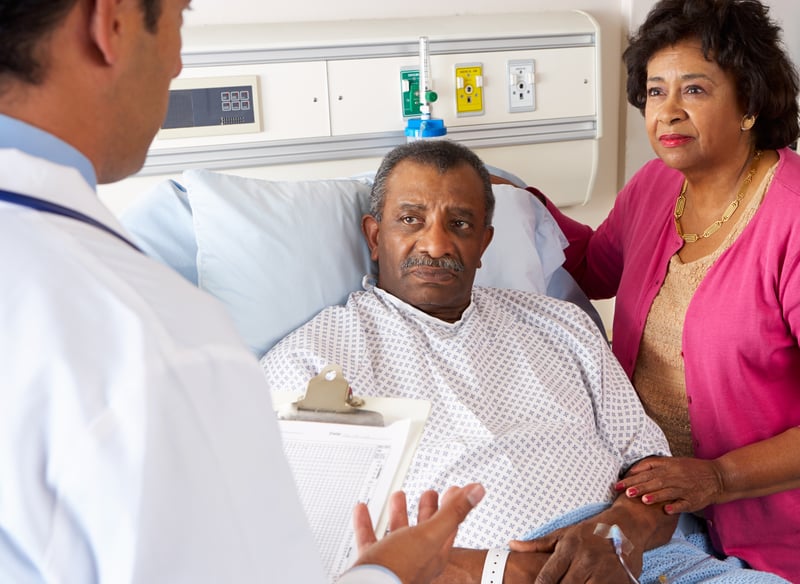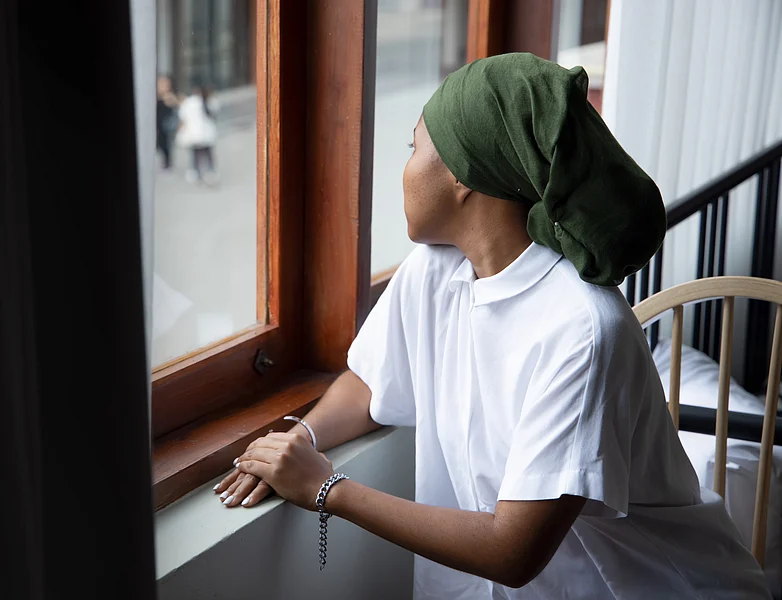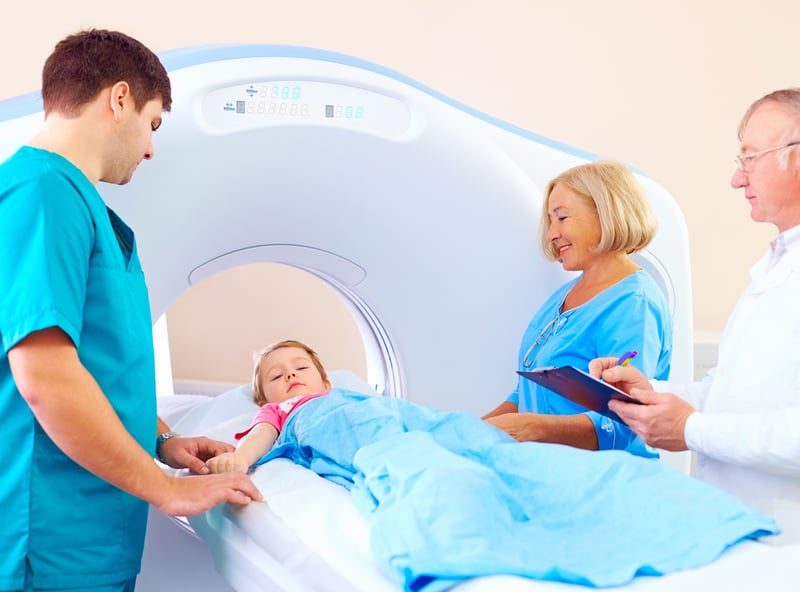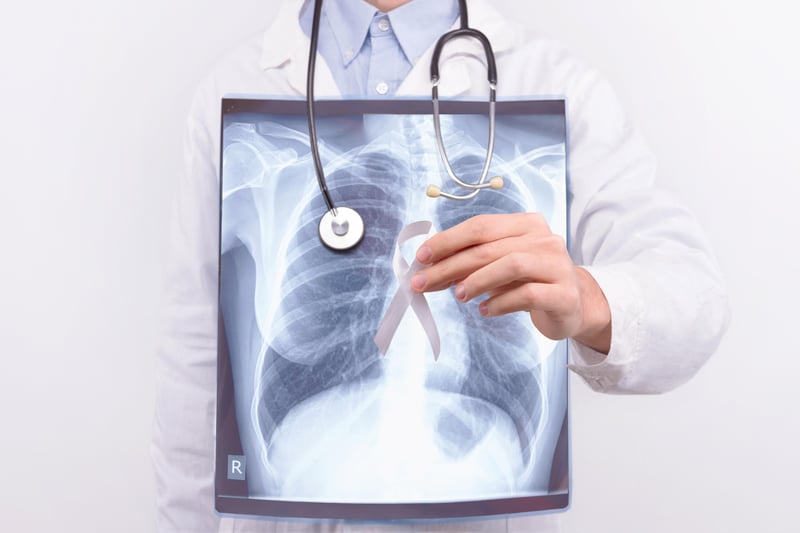Get Healthy!
Results for search "Radiation".
23 Sep
Chicago Teen Shares Early Symptom of Vaginal Cancer That Was Misdiagnosed as Stress
What started as a normal milestone for 14-year-old Liliana Castaneda turned into a fight for her life. Heavy bleeding was originally dismissed as stress—but it was actually a rare vaginal cancer.
Health News Results - 46
U.S. health officials plan a new study investigating whether radiation from cellphones may affect human health.
A spokesperson for the U.S. Department of Health and Human Services (HHS) said the research will examine electromagnetic radiation and possible gaps in current science.
The initiative stems from numerous concerns raised by Health Secretary
Radiation therapy is a highly effective way to treat cancers, but only if patients make it to their regular treatment sessions.
Unfortunately, as many as 1 out of 5 U.S. cancer patients miss two or more of their recommended radiation appointments, increasing their risk of dying from cancer or suffering a repeat bout of disease.
But providing patients with support — helping the...
- Dennis Thompson HealthDay Reporter
- |
- November 14, 2025
- |
- Full Page
A new study suggests that many women with early-stage breast cancer may not need radiation after a mastectomy, thanks to advances in modern cancer treatment.
The international clinical trial followed more than 1,600 women who had early-stage breast cancer. They were consi...
- I. Edwards HealthDay Reporter
- |
- November 6, 2025
- |
- Full Page
People with aching knees might receive relief from a course of low-dose radiation therapy, a new study suggests.
People with mild to moderate wear-and-tear knee arthritis felt less pain and had better mobility after radiation treatment, researchers reported Sunday at a meeting of the Ame...
- Dennis Thompson HealthDay Reporter
- |
- October 1, 2025
- |
- Full Page
Targeted radiation therapy might be a safer way to treat a potentially dangerous heart rate problem, a new study says.
Radiation therapy treated ventricular tachycardia as well as a standard but complicated procedure called catheter ablation, researchers reported Sept. 29 in the International Journal of Radiat...
- Dennis Thompson HealthDay Reporter
- |
- October 1, 2025
- |
- Full Page
Women who survive an early breast cancer can breathe easy, a recent study says.
Their risk of developing a second cancer is low, about 2% to 3% greater than that of women in the general population, researchers reported in T...
- Dennis Thompson HealthDay Reporter
- |
- September 16, 2025
- |
- Full Page
LaShae Rolle, 27, is a competitive powerlifter capable of squatting 441 pounds, benching 292 pounds and deadlifting 497 pounds.
Last year, breast cancer tried to derail Rolle's dreams of going up against the best of the best.
<...- HealthDay Reporter
- Dennis Thompson
- |
- July 25, 2025
- |
- Full Page
Radiation therapy to treat cancer might be a double-edged sword that increases the risk posed by other malignant tumors, a new study argues.
While radiation is often used alone or in combination with other treatments to control cancer, high doses of radiation can promote the growth of metastatic ...
- HealthDay Reporter
- Dennis Thompson
- |
- July 7, 2025
- |
- Full Page
U.S. rural communities could be experiencing a “brain drain” when it comes to cancer care, a new study says.
Most new radiation oncologists — docs who treat cancer with radiation — are choosing to work in big metropolitan areas rather than in rural locales, researchers fou...
- HealthDay Reporter
- Dennis Thompson
- |
- June 2, 2025
- |
- Full Page
Tiffiney Beard expected a rough road ahead after her April 2024 diagnosis with a rare cancer of the salivary glands.
Tumors from adenoid cystic carcinoma target the body’s nerves, so fighting the cancer typically comes with a range of side effects -- fatigue, jaw pain, difficulty eating or swallowing, loss of taste, headaches and memory issues.
In Beard’s case, the cance...
- HealthDay Reporter
- Dennis Thompson
- |
- May 6, 2025
- |
- Full Page
Considering a trendy whole-body CT scan after hearing celebrities like Kim Kardashian, Paris Hilton and Jason Bateman tout their benefits?
Weigh the cancer risk from the scan’s radiation before making an appointment, a new study warns.
CT scan radiation is expected to ...
- HealthDay Reporter
- Dennis Thompson
- |
- April 16, 2025
- |
- Full Page
Breast-conserving therapy for breast cancer might not conserve as much as previously thought, a new study suggests.
Women’s breasts can shrink considerably after they’ve undergone radiation therapy and lumpectomy for their early-stage breast cancer, researcher...
- HealthDay Reporter
- Dennis Thompson
- |
- March 31, 2025
- |
- Full Page
Surgery might not be needed to treat as many as 60% of early-stage breast cancers, a new study says.
Breast cancers that have been completely wiped out by chemotherapy and radiation treatment are not likely to come back, according to a small-scale clinical ...
- HealthDay Reporter
- Dennis Thompson
- |
- March 31, 2025
- |
- Full Page
Colon cancer is a particularly deadly form of the disease, the second most common cause of cancer deaths in the U.S.
But patients diagnosed with colon cancer also need to be concerned about their heart health, especially if they’re younger adults, a new study says.
C...
- HealthDay Reporter
- Dennis Thompson
- |
- March 26, 2025
- |
- Full Page
Hospitals and imaging centers are now required to track and report radiation exposure from CT scans under new Medicare regulations.
The rules, which began rolling out in January, come as researchers raise concerns that excessive CT scan radiation may contribute to cancer ...
- HealthDay Reporter
- I. Edwards
- |
- March 10, 2025
- |
- Full Page
Radiation therapy for breast cancer comes with a host of side effects, including conditions as serious as heart problems and pneumonia.
Now, a new study says some breast cancer patients can safely skip radiation therapy without risking their cancer coming back.
Women who didn&rs...
- HealthDay Reporter
- Dennis Thompson
- |
- December 18, 2024
- |
- Full Page
Radiation therapy following surgery can keep breast cancer from returning for up to 10 years, a new study claims.
The study supports the current standard of care for early-stage breast cancer, which involves surgery followed by radiation therapy, researchers said.
â...
- HealthDay Reporter
- Dennis Thompson
- |
- August 9, 2024
- |
- Full Page
Radioactive substances injected into the body could provide a better way of treating glioblastoma, the most malignant form of brain cancer, a new review says.
The cancer treatment, called targeted alpha therapy (TAT), involves injection of radioactive alpha particles attached to special molecules that seek out cancer cells in the body.
Pre-clinical experiments show that TAT increase...
- HealthDay Reporter
- Dennis Thompson
- |
- July 11, 2024
- |
- Full Page
Killing off large tumors by freezing them could become an effective means of fighting difficult-to-treat breast cancer, a new study says.
Only 10% of people who underwent the minimally invasive procedure, called cryoablation, had their cancer come back within 16 months, researchers said.
"...
- HealthDay Reporter
- Dennis Thompson and Carole Tanzer Miller
- |
- March 20, 2024
- |
- Full Page
More Americans exposed to radiation caused by the government would be compensated under a bill that passed the U.S. Senate Thursday.
The bipartisan legislation, which would cost an estimated $50 billion, would expand the Radiation Exposure Compensation Act (R...
- HealthDay Reporter
- Robin Foster
- |
- March 8, 2024
- |
- Full Page
For a subset of patients with advanced lung cancer, radiation therapy can sometimes substantially extend their lives.
Now a new study hints that a blood test could be used to identify the people most likely to benefit.
Right now, there is no way to cure stage 4, or metastatic,...
- HealthDay Reporter
- Amy Norton
- |
- October 9, 2023
- |
- Full Page
Breast cancer patients who undergo a mastectomy can probably benefit from a shorter course of more intense radiation therapy, a new study indicates.
Hypofractionated radiation therapy -- which provides a higher dose each session over three weeks -- provides the same protection against breast cancer recurrence and post-surgical complications as a standard course of lower-dose radiation ove...
- HealthDay Reporter
- Dennis Thompson
- |
- October 4, 2023
- |
- Full Page
Many women with early breast cancer undergo breast-conserving surgery along with radiation to kill any errant cancer cells, but some may be able to safely skip radiation, new research suggests.
"If the tumors are low-risk, as defined in part by being caught early/small and in part by having favorable molecular features, the risk of recurrence is minimal even if you skip out on what has be...
- HealthDay Reporter
- Denise Mann
- |
- August 17, 2023
- |
- Full Page
A technique that uses imaging technology as a guide can make radiation therapy safer for patients undergoing treatment for prostate cancer, a new research review finds.
The technology enables clinicians to accurately aim the radiation beams at the prostate, while avoiding bladder, urethra and rectal tissue. This, in turn, reduces short-term side effects for patients, according to research...
- HealthDay Reporter
- Cara Murez
- |
- July 25, 2023
- |
- Full Page
Radiation therapy might not be necessary in treating some forms of rectal cancer and lymphoma, sparing patients from the toxic treatment, a pair of new clinical trials shows.
One trial found that rectal cancer patients whose tumors shrink in response to chemotherapy can safely skip the radiation therapy that's normally provided prior to surgery, researchers reported at the American Societ...
- HealthDay Reporter
- Dennis Thompson
- |
- June 6, 2023
- |
- Full Page
When Ann Alexander underwent chemotherapy to treat breast cancer a decade ago, she was warned about potential hair loss, nausea and vomiting.
The 73-year-old wasn't, however, told about the potential side effects of radiation therapy, namely acute radiation dermatitis. Symptoms can range from mild to severe, and they include itchy skin, swelling, blistering and open sores.
"It was p...
- HealthDay Reporter
- Denise Mann
- |
- May 8, 2023
- |
- Full Page
Each year, about 140 kids in the United States are diagnosed with a craniopharyngioma, a typically non-cancerous brain tumor that develops near the pituitary gland at the base of the brain.
Doctors treat craniopharyngiomas with surgery to remove the entire tumor or a less aggressive surgery followed by radiation to kill any remaining cells.
Now, a
Getting a single CT scan during childhood doesn't appear to increase a child's risk of a future brain tumor, leukemia or lymphoma, new research finds, but getting four or more scans more than doubles the chances.
CT scans use low-dose radiation, which can damage cells. Past evidence about the risks of cancer from these scans in children 18 and younger was conflicting, researchers said.
- HealthDay Reporter
- Cara Murez
- |
- April 24, 2023
- |
- Full Page
Many older women with early-stage breast cancer can skip radiation without harming their survival odds, a new clinical trial finds.
The study involved women age 65 and older who had surgery for small breast tumors deemed to be low risk of coming back. Typically, those women undergo radiation after surgery, and then start on hormonal therapy to further drive down the chances of a recurrenc...
- HealthDay Reporter
- Amy Norton
- |
- February 16, 2023
- |
- Full Page
A new genetic test may help determine which people with breast cancer can safely skip radiation after breast-conserving surgery to remove their tumor.
Individuals with invasive breast cancer who had low scores on an investigational gene panel were just as likely to experience a recurrence if they received radiation therapy after breast-conserving surgery or not, Swedish researchers r...
- HealthDay Reporter
- Denise Mann
- |
- December 9, 2022
- |
- Full Page
If you're diagnosed with early breast cancer, treatment often involves breast-conserving surgery followed by chemotherapy, medication and a course of radiation to keep your cancer from coming back. However, little has been known about the long-term benefits of radiation.
Now, new research shows that radiation lowers the chances that your cancer will return in the same breast by 60% over t...
- HealthDay Reporter
- Denise Mann
- |
- November 18, 2022
- |
- Full Page
Flash radiotherapy, a new technology that uses targeted proton beams, is safe and effective in relieving pain for terminal cancer patients, a new, small study suggests.
Flash radiotherapy delivers radiation at dose rates more than 300 times higher than those used in conventional radiation...
- HealthDay Reporter
- Steven Reinberg
- |
- October 26, 2022
- |
- Full Page
As doctors work toward developing more personalized cancer care, a new study looks at whether lung cancer patients can miss a few days of radiation treatment and make them up with a higher dose.
The more treatments a patient skips, the higher their risk of early death, according to the research from Fox Chase Cancer Center in Philadelphia. However, some patients may still benefit from re...
- HealthDay Reporter
- Cara Murez
- |
- October 25, 2022
- |
- Full Page
While the United States has recently ordered a $290 million supply of a drug meant to treat radiation sickness, federal health officials say that's not cause for alarm.
It's coincidental that the order of
Tens of thousands of breast cancer patients could safely go without radiation therapy after their tumor has been removed, a new study argues.
Gene testing helped doctors identify a group of women who skipped radiation therapy because their cancer showed very low...
- HealthDay Reporter
- Dennis Thompson
- |
- June 7, 2022
- |
- Full Page
A new analysis uncovers a racial paradox in prostate cancer care: While Black men are often diagnosed later and with more aggressive disease than white men, radiation therapy seems to work better for them than for their white peers.
To come to that conclusion, researchers reviewed seven trials comprising more than 8,800 men with
A condition called lymphedema is a well-known side effect of breast cancer treatment that can lead to swelling in the arms and legs.
New research suggests that Black women experience are at more than three times the risk of this painful issue compared to white women.
"Lymphedema worsens quality of life for breast cancer patients," said the study's lead author, Dr. Andrea Barrio. S...
- HealthDay Reporter
- Cara Murez
- |
- December 7, 2021
- |
- Full Page
New treatment options are giving hope to patients with stomach cancer.
Also known as gastric cancer, the disease is the world's sixth most common cancer with 1.09 million new cases in 2020, according to the World Health Organization.
It's an abnormal growth of cells that can affect any part of the stomach, but typically forms in the main part.
"I tell patients who have been re...
- HealthDay Reporter
- |
- November 25, 2021
- |
- Full Page
Women with breast cancer are known to have heart problems related to treatment, and now a new study shows their odds of developing an abnormal heart rhythm known as atrial fibrillation (a-fib) may increase in the wake of a breast cancer diagnosis.
Women who develop a-fib within a month of a breast cancer diagnosis are more likely to die from heart- or blood vessel-related problems within ...
- HealthDay Reporter
- Denise Mann
- |
- November 16, 2021
- |
- Full Page
CT scans expose patients to radiation even as they help doctors spot serious health problems. Now a new study finds low-dose scans can readily spot appendicitis while reducing patients' radiation exposure.
"The results of this study suggest that the diagnostic CT scan radiation dose can be significantly decreased without impairing diagnostic accuracy," said lead study author Paulina Salmi...
- HealthDay Reporter
- Robert Preidt
- |
- November 15, 2021
- |
- Full Page
Since 1971, when the U.S. government made defeating cancer a goal and put major funding behind it, death rates for many cancers have plummeted, but some are increasing, according to a new American Cancer Society report.
Death rates for all cancers combined have declined since passage of the National Cancer Act of 1971, according to the report. For example, in 2019, deaths from lung c...
- HealthDay Reporter
- Steven Reinberg
- |
- November 11, 2021
- |
- Full Page
After prostate cancer surgery, men can safely undergo fewer radiation treatments at higher doses, a new clinical trial shows.
Researchers found that the shorter regimen -- given over five weeks, instead of seven -- did not raise patients' odds of lasting side effects.
Safety has been a "major concern" because when patients have fewer radiation treatments, the daily dose needs to be ...
- HealthDay Reporter
- Amy Norton
- |
- October 27, 2021
- |
- Full Page
High-dose radiation therapy may stall tumor growth in patients with advanced lung cancer who are not fully responding to drug therapies, a preliminary study suggests.
The study involved patients whose lung cancer was considered "oligoprogressive." That means the cancer had spread to other sites in the body, and the patients were having a mixed response to standard systemic treatments -- i...
- HealthDay Reporter
- Amy Norton
- |
- October 26, 2021
- |
- Full Page
The cancer drug cisplatin can save children's lives, but often with the side effect of hearing loss. Now a new study shows that young children are especially vulnerable, and the hearing damage may begin early in the course of treatment.
The researchers said the findings highlight the need to screen kids' hearing during each round of cisplatin treatment, to catch problems early.
- HealthDay Reporter
- Amy Norton
- |
- September 28, 2021
- |
- Full Page
Younger women who undergo radiation for cancer in the left breast have a heightened risk of heart disease years later, a new study finds.
Among women who received radiation therapy for left-sided breast cancer, 10.5% developed coronary artery disease over the next 27 years, researchers found. That was close to double the rate among women who had radiation for tumors in the right breast.
- HealthDay Reporter
- Amy Norton
- |
- September 22, 2021
- |
- Full Page


